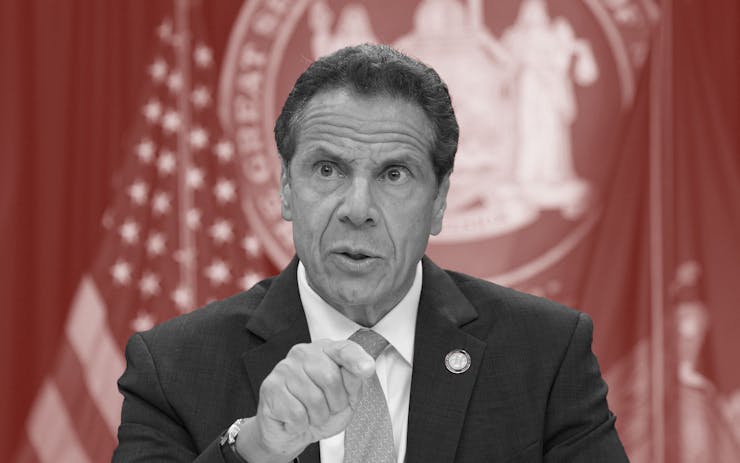Reversing his long-held opposition to medical and recreational cannabis, New York Gov. Andrew Cuomo called today for the legalization of adult-use cannabis during an address outlining the top priorities of his 2019 agenda.
“We must end the needless and unjust criminal convictions and the debilitating criminal stigma and let’s legalize the adult use of recreational marijuana once and for all,” Cuomo said, to raucous applause at the New York Bar Association.
A Change of Course
Cuomo’s announcement marks the culmination of his slowly-thawing views on cannabis. As recently as 2013, he argued that “the risks outweigh the benefits” of medical marijuana.
Pushed by rival Cynthia Nixon, Cuomo finally changed his position before the Nov. 2018 election.
Although he endorsed a meager medical marijuana program a few months later, his opposition to adult-use remained in full force. In 2017 he referred to marijuana as a “gateway drug,” continuing: “If you choose to use marijuana recreationally, you know the law.”
In 2018, however, Cuomo began to change course. In January, he commission a study by the state’s Department of Health to determine the pros and cons of cannabis use. “It is a hotly debated topic, pardon the pun, and it would be nice to have some facts in the middle of the debate,” he quipped at the time.
After the study affirmed that the pros indeed do outweigh the cons, Cuomo and his staff embarked—in the midst of a re-election campaign in which his primary opponent Cynthia Nixon outspokenly supported cannabis legalization—on a tour of 15 “listening sessions” to speak with constituents across the state.
Racial Disparities Must End
Cuomo’s full-on support of legalization comes in the wake of a study by New York City Comptroller Scott Stringer that highlighted the extreme racial disparities in cannabis-related arrests in the city. Among other findings, Stringer concluded that between 2010 and 2017, “there were eight times as many arrests of Black and Latinx people as there were of white people, 86.5 percent compared to 10.5 percent” and that the cannabis-related arrest rate in East Harlem was 13 times higher than the Upper East Side, its adjacent neighborhood.
“As we move towards creating a legal market that will generate billions of dollars, we have to ensure that we correct historic injustices and backwards policies of the past,” Stringer wrote.
Revenue Could Be Substantial
He’s not exaggerating about the potential revenue. In a separate report filed this May, the Comptroller’s Office argued that New York City—whose residents, combined, smoke more marijuana than any city in the world—could likely pull in $336 million in annual tax revenue for the city alone, and an additional $436 million for the state.
Shop highly rated dispensaries near you
Showing you dispensaries nearFor now, Cuomo’s proposal is just that—a proposal. Senate Bill S3040C, the Marijuana Regulation and Taxation Act, sponsored by state Sen. Liz Krueger (D-Manhattan), is the leading bill to legalize and regulate with progressive equity provisions.
Ahead of it stands a long confirmation battle in both houses of the state legislature. In November, Democrats won control of the state senate, resulting in what is essentially one-party rule in the Empire State, and legislation is expected to pass. But, as state Sen. Diane Savino pointed out to me recently, “Not all Democrats think the same way.”
Kassandra Frederique, New York State Director of the Drug Policy Alliance, noted that her group just concluded a conference on legalization and social equity in Albany last week. “Governor Cuomo and the legislature must implement legalization in a way that ensures equity and diversity,” she said in a statement earlier today, “while reinvesting in the communities hit hardest by marijuana criminalization. The Marijuana Regulation and Taxation Act does all of these things, so Governor Cuomo and the new Democratic majority have a golden opportunity to get legalization done the right way, right away.”
In a state where legalization has moved excruciatingly slowly, one thing is clear: It’s not over until it’s over. And once the bill is signed, the battle for a fair and equal system will only just begin.





